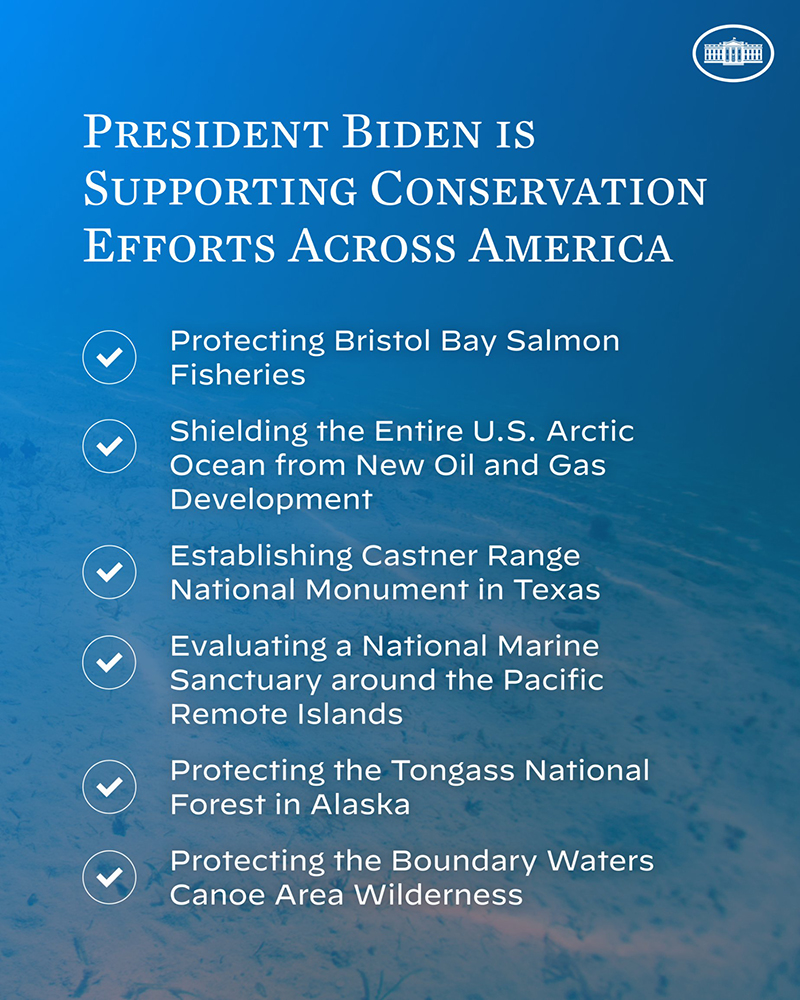
President Joe Biden celebrated his administration’s defense of the Bristol Bay watershed and other environmental achievements during a mid-May gathering at the White House’s Rose Garden with Alaska guests including tribal leaders and conservationists.
“Bristol Bay is an extraordinary place, unlike anywhere in the world,” Biden said. “Six rivers meet there, traveling through 40,000 miles of tundra, wetlands and lakes, collecting freshwater and salmon along the way … making this the largest sockeye salmon fishery on all the earth.”
The president spoke also of a number of other conservation achievements in ceremonies in the Rose Garden on May 11, while concentrating on the importance of the Southwest Alaska watershed where millions of sockeye salmon are harvested every summer by commercial drift net and setnet harvesters and then processed and marketed all over the world.
The president was introduced by Alannah Hurley, executive director of United Tribes of Bristol Bay, in Dillingham, Alaska. Hurley praised Biden for listening to those opposed to the proposed Pebble mine, which would extract copper, gold and molybdenum for lands abutting the Bristol Bay watershed.
While Biden spoke of the proposed mine as a dead issue, Hurley noted that mine proponents are appealing to get the project permitted, despite denial of necessary permit applications.
The Pebble Mine, a proposed gold and copper mine project, has been under review by the Environmental Protection Agency for nearly two decades. In January, the EPA used its veto power under the Clean Water Act’s Section 404(c), which allows the agency to veto a permit that the U.S. Army Corps of Engineers had issued to the Pebble Partnership for dumping, dredging or filling materials into Bristol Bay area waterways.
Biden said the mine would have destroyed 100 miles of streams and nearly 3,000 acres of wetlands and open water critical to healthy salmon habitat. Mine wastes would have been stored in perpetuity forever, he said.
The president noted that Bristol Bay is a region prone to earthquakes, which could destroy that dam.
“And if the dam failed, the waste would be poured into the headwaters of Bristol Bay, and that would be a true calamity,” he said.
“This is everything our people have been fighting for: to make sure that our children will know who they are, and will be able to continue to be Native people in Bristol Bay for generations to come,” Hurley told the crowd, which included several Bristol Bay children, including her own two-year-old daughter, Mancuaq Mann.
“So to see our kids with the president today, celebrating this monumental, historic victory for us was just profound,” Hurley said.
The president gave thanks to everyone who had a role in stopping mine development in the Bristol Bay watershed area.
“I’m sure along the way you were told this mine was inevitable, that you should just accept it, that you should give up,” he said. “But you didn’t.”
